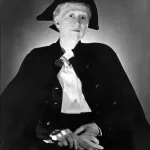You are still on the highway and the great light of
noon comes over the asphalt, the gravelled
shoulders. You are on the highway, there is a kind of
laughter, the cars pound
south. Over your shoulder the scrub-grass, the fences,
the fields wait patiently as though someone
believed in them. The light has laid it
upon them. One
crow scrawks. The edges
take care of themselves, there is
no strain, you can almost hear it, you
inhabit it.
Back in the city many things you lived for
are coming apart.
Transistor rock still fills
back yards, in the parks young men do things to
hondas; there will be
heat lightning, beer on the porches, goings on.
That is not it.
And you are still on the highway. There are no
houses, no farms. Across the median, past the swish and thud of the
northbound cars, beyond the opposite
fences, the fields, the
climbing escarpment, solitary in the
bright eye of the sun the
birches dance, and they
dance. They have
their reasons. You do not know
anything.
Cicadas call now, in the darkening swollen air there is dust
in your nostrils; a
kind of laughter; you are still on the highway.
You can’t help thinking about your life on a long stretch of highway.
- Roads and highways are often used as a metaphor for life’s journey. If that’s the case, where on the “road of life” do you sense this speaker is? How do they feel about their situation? What do they care about? What clues does the poet leave for you to discover this information?
- This poem gets a lot of energy from its verbs. List all the verbs, and try to replace them with others to see how the poem might change.
- You might know Dennis Lee’s writing for children, including Alligator Pie and Jelly Belly. The tone here is very different, but there are also some similarities. The use of a refrain, for instance, or an attention to sound. Put one of your favourite children’s poems by Lee next to this poem (or use this version of “Alligator Pie”), and see what connections you can make.
- The poem uses the pronoun “you,” instead of “I.” What’s the effect of this? Try re-writing the poem replacing all of the “you”s with “I”s or “she”s. How does it change?
- Recitation challenge: the phrase “you are on the highway” or “you are still on the highway” appears four times in the poem. Trace an emotional journey for the speaker that’s punctuated every time this phrase appears. Try reciting the poem as if the speaker is getting more and more frustrated each time. More excited to be home. More tired. More lonely.
- Writing exercise: the next time you are on a long journey, take detailed notes of the things you see along the way. (Don’t do this if you’re the one driving!) For some of the ride, record the images as if you just got some very good news. For the next section of the drive, imagine you just got some very bad news. How does your description of the landscape change?
Useful Links
- Traffic cameras from the 400 north of Toronto: https://511on.ca/cctv?start=0&length=10&order%5Bi%5D=0&order%5Bdir%5D=asc
- A recent interview with Dennis Lee, including him reading “Alligator Pie” and the worst poem he’s ever written: https://www.cbc.ca/radio/thesundayedition/the-sunday-edition-october-22-2017-1.4363726/a-feature-interview-with-canadian-poet-dennis-lee-1.4363743
- Does your city or province have a poet laureate? If so, who is it? If not, start a campaign to inaugurate a new program! Dennis Lee was Toronto’s inaugural Poet Laureate, a role which rotates every two years. Here is information about that city program: https://www.toronto.ca/explore-enjoy/history-art-culture/poet-laureate/
“400: Coming Home” taken from Civil Elegies and Other Poems by Dennis Lee, copyright © 1972. Published by House of Anansi Press.





